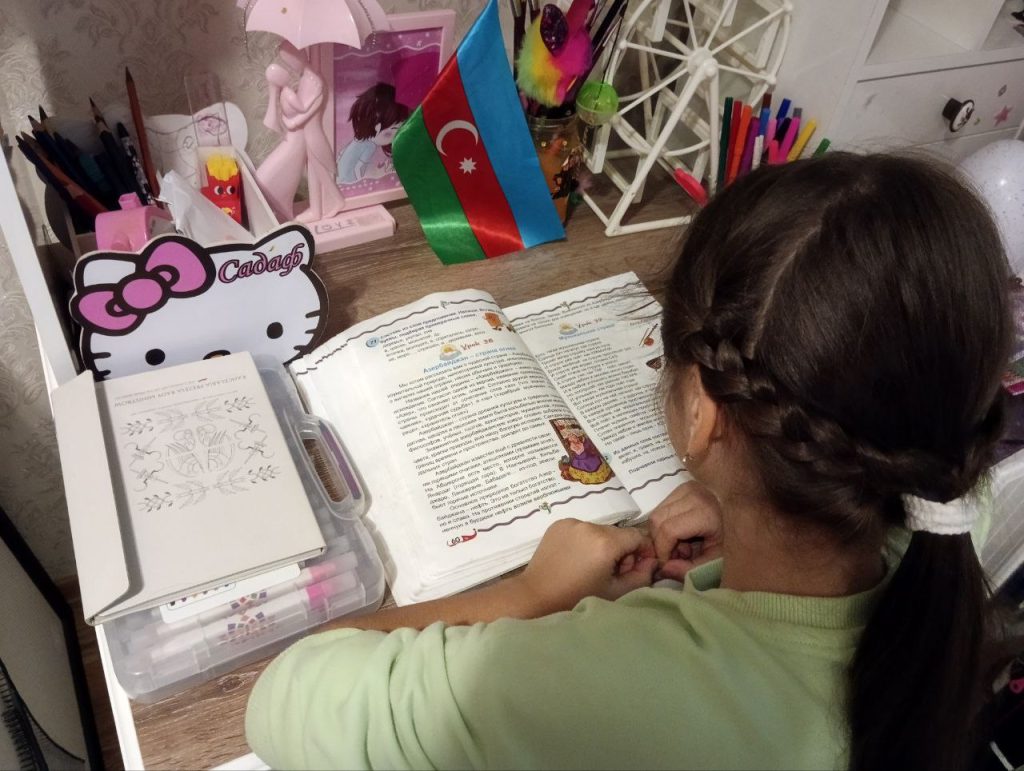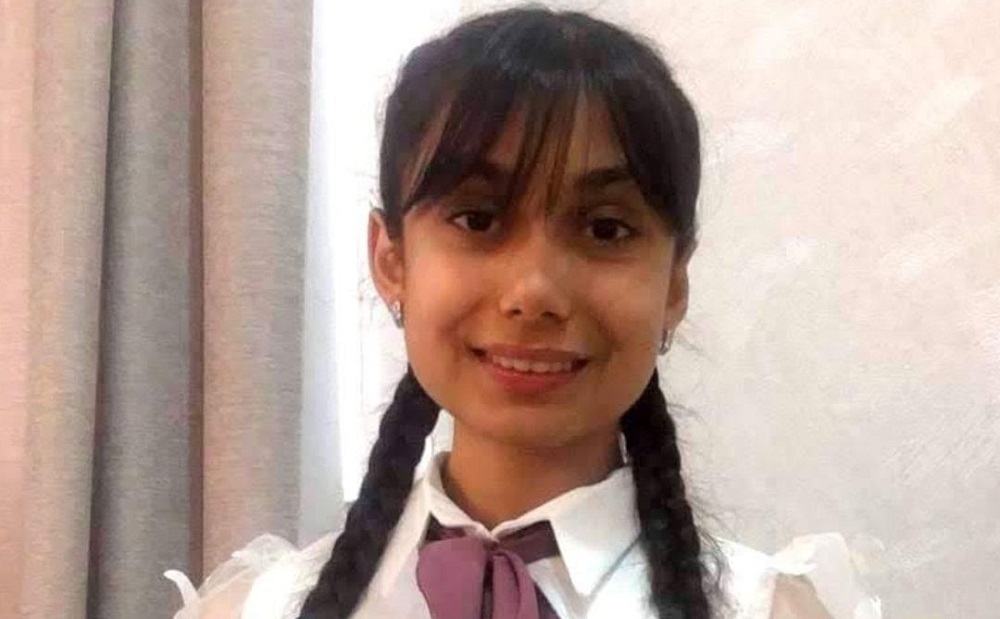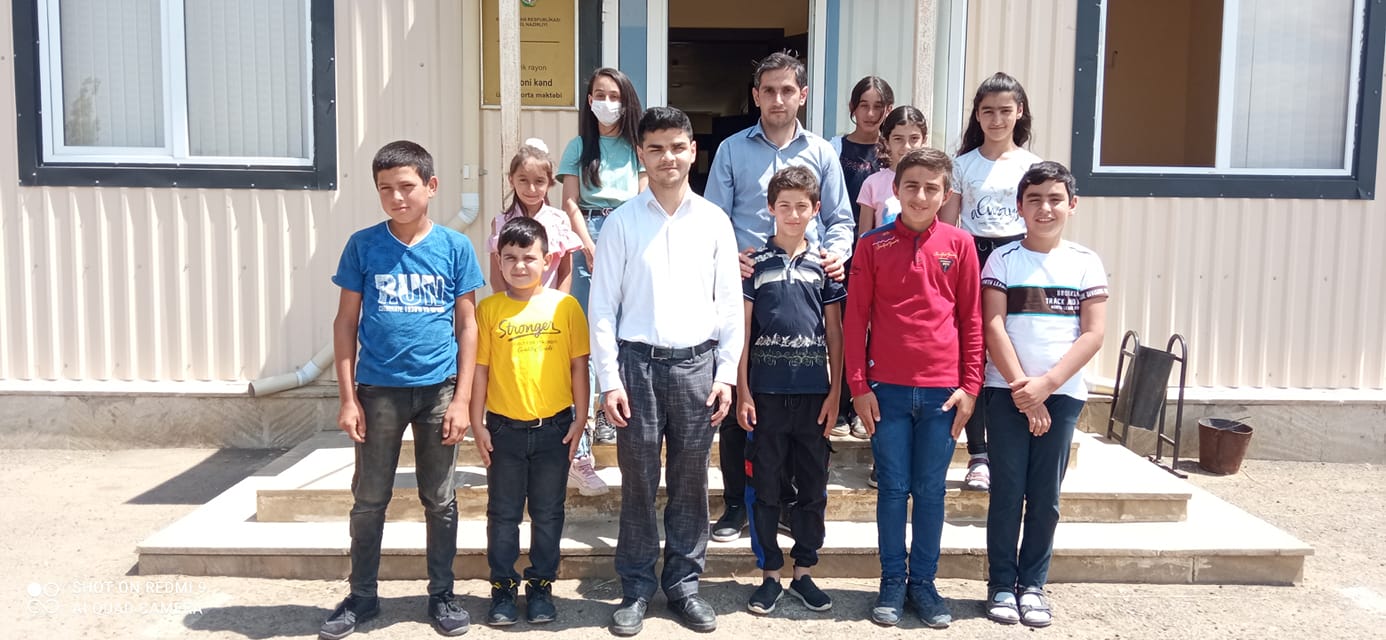The number of Russian-language students in Azerbaijan has increased by 50,000 in 5 years
Russian students in Azerbaijan
The presence of Russian-language students in Azerbaijani schools at the expense of the state is occasionally controversial. Part of society is in favor of doing away with education in Russian at the expense of the state. But statistics shows that the demand for the Russian language increases every year.
- Director and editor-in-chief of a popular online publication arrested in Azerbaijan
- “Yerevan should reject this proposal”: opinion on direct talks with Baku
- The Government of Georgia has developed a de-oligarchization plan. What does it involve?
Semra Agaeva’s daughter studies in Russian. She says that Russian is still relevant for the Caucasus region. So when her daughter turned four, she enrolled her in a Russian-language kindergarten so that she would learn Russian until she went to school. But while the child was learning Russian, she completely forgot Azerbaijani. So Semra decided to continue her daughter in Russian, and her daughter started her primary education in the Russian section of secondary school No. 2 in Khirdalan:

“In Khirdalan, only two schools have Russian-language education. In both schools, two classes each are allocated to the Russian section. All the classes are overcrowded. My daughter studied together with 48 classmates for two years. It is impossible to devote even one minute per child during a lesson. The teacher had to hire an assistant to teach the curriculum. In order for children to master basic subjects such as Russian and math, music, drawing and physical education were not taught. Students often did not even go out for recess. The teacher suffered, the children suffered too,” Semra said.
She says that from the first days she began to notice problems in the Russian section. The most important was the shortage of teachers.
“Our primary school teacher was strong. But, for example, when the Azerbaijani language teacher wrote homework on the blackboard, he made mistakes almost every time. Parents complained, but they were told there was no other teacher. Parents of high school students say, the further you go, the worse it gets. It is impossible to find teachers for physics, math, biology, etc. in the senior classes of the Russian section. They invite Azerbaijani-speaking teachers, but they cannot explain the subject in Russian,” says a disgruntled parent.
In Azerbaijan, secondary and higher education is conducted in Azerbaijani and Russian languages at the expense of the state. Semra Agayeva believes that education in any language other than Azeri should not be provided by the state:
“In my opinion, it would be better to close the Russian section at the expense of the state once and for all than to keep it in such a bad condition. If someone wants their child to be educated in Russian, let them send them to a public school. After all, education in English, French, German, etc. is provided only on a fee basis in public schools, so it should be the same in Russian. The situation in the Russian section of state schools is terrible. This year I also had to send my daughter to a private secondary school”.
Another parent, Zemfira Aliyeva, whose child also studies in Russian, believes that education in Russian should remain at the expense of the state, but that indifference to the section must change.
“In the Russian sector, children grow up more independently, there is less pressure on them, which means their worldview develops better,” she says.
Zemfira believes that studying in Russian promises more employment opportunities in the future, as the Russian language is still very important in Azerbaijan.
“Knowledge of Russian is necessary even to work as a shop assistant in an ordinary shop in the centre of Baku. Therefore, the demand for the Russian sector in the country is great. The state should take into account this need. The number of teachers should be prepared in accordance with the demand, so that there is no overcrowding of classes, and so that one class does not have 40-50 children. Also, there should not be a shortage of subject teachers in high schools.”
Currently, 329 out of 4 thousand 432 secondary schools in Azerbaijan are fully Russian.
Statistics show that the demand for Russian in the country is increasing every year. According to data announced by Deputy Minister of Science and Education Idris Isayev in the first half of 2023, the number of students in the Russian sector across Azerbaijan currently stands at 160 thousand. In 2018, this number was 90, and in 2019 it will rise to 120 thousand people. This means that the number of children studying in the Russian sector has increased by 50 thousand people in the last five years.
Vusala Agabeyli, head of a department at the Azerbaijan University of Languages and an education expert, also sees a growing demand for Russian. According to her, a few years ago, interest in the Russian language declined significantly. In recent years, however, this demand has started to increase again.
The specialist notes that the narrowing of this sphere over 10-15 years, the decrease in the number of graduates and teachers has led to a shortage of teachers in Russian:
“Although the number of students in Russian is increasing every year, the number of teachers who have to educate these students has decreased. This is the main reason for the decline in the quality of education here.”
Vusala Aghabeyli also says there are different reasons why parents send their children to study in Russian:
“Sometimes parents blindly send their children to Russian just because it seems prestigious to them. In reality, it’s just an inferiority complex. On the other hand, there are parents who consider that the available literature and scientific works are either in Russian, Turkish or English and try to build their children’s future more optimally. Since tuition in English and Turkish is paid, they prefer to educate their children in Russian.”
Member of the Science and Education Committee of Milli Majlis, MP Aghiya Nakhchivanli is an advocate of paying more attention to Russian-language education in Azerbaijani schools. The MP noted that the choice of language depends on the wishes of the family.
“The family, of course, can send the child to school in the language they feel comfortable with. I am absolutely not in favor of closing Russian schools. Let the choice be voluntary. Literature in Russian is easier to find, classics are easier to read. We ourselves were educated in Russian. We put our children in a Russian school so that it would be easier to prepare them. This does not mean that we forget about our native language, we do not prefer it. Not at all. It is said that the more a person knows other languages, the richer he is. From this point of view, the choice can be free,” the deputy says.




















